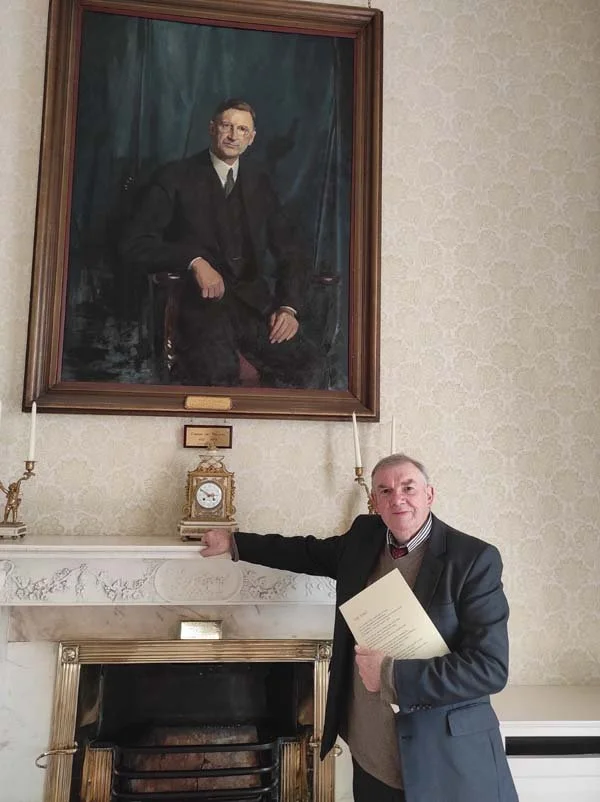By Thomas McCarthy
That sometimes a frame can be more valuable than a picture
Always fascinated me as a young student. How can it be
That what is after all only the wax that contains the pure honey
Or a shell that holds in perfect engineering all protein vigour
Of an egg; that such things can be more valuable than the food?
Similarly, are there poems of a symmetrical perfect form
Where the idea, the thing itself, the very breathing membrane,
Has no intrinsic coherence but a thing when cut from its wood
And gold-leaf becoming worthless and folded? Thinking thus
Excuses the 1950s Moore St. vendor who tore this Guercino oil
From its Venetian robe, throwing art away as a mere spoil,
It lessens the shame of that Viking raider tearing Exodus
From its golden shrine in a monastery calm, the scriptorium
Burning and the Lord Abbot floored. This poem that might
Have survived as a medieval landscape or moment in Italian art
Could be torn also from its more valuable verbal frame
With the reader’s attention wafer-thin; the real poem in flight
To a longboat where ignorance itself played the largest part.
The Importance of Arts, Culture & The Creative Process We’d love to hear your thoughts on the importance of the arts and humanities and how this project resonates with you.
The creative process gives us our existential moment. It is our way of being most fully in the world, at one with it, part of the whole. Creativity is really the key to human existence.
What was the inspiration for your creative work?
This work was inspired by the frailty of things, the mutability of these artistic achievements.
Tell us something about the natural world that you love and don’t wish to lose. What are your thoughts on the kind of world we are leaving for the next generation?
My greatest fear is the loss of fish in our rivers. Fish are the barometers of our planet: if they are distressed so is or planet. I was delighted last summer to see shoals of sea trout and salmon in the Blackwater and Bride Rivers of Southern Ireland, to see fish returning after all river pollution had been brought under control. To see so many fish brought me back to the buoyant days of my childhood.














































































